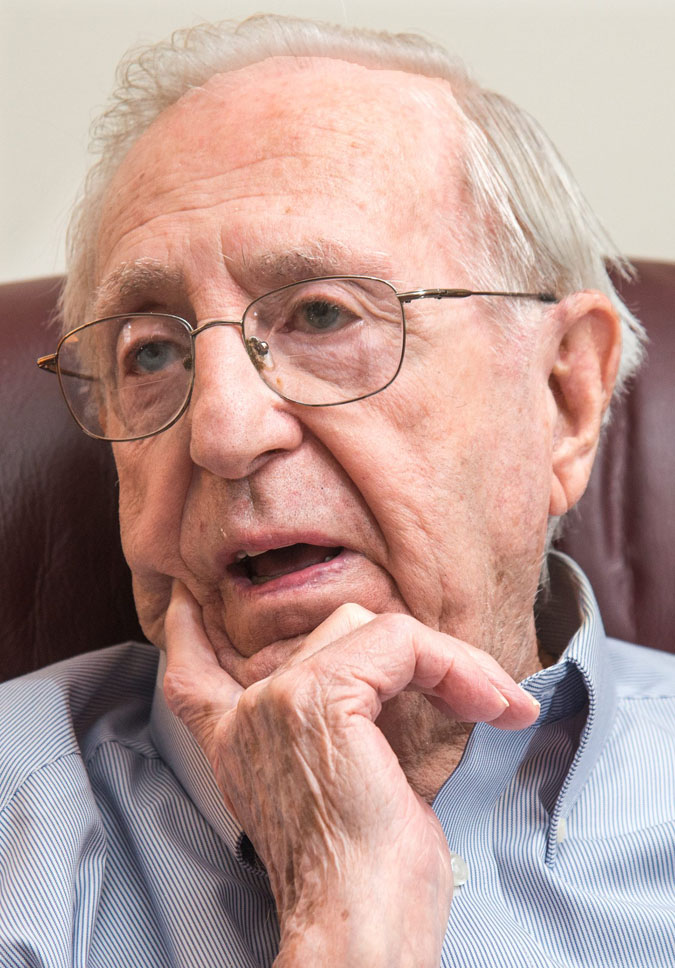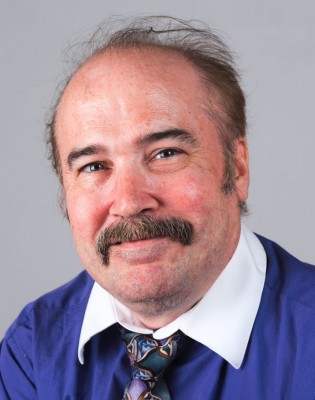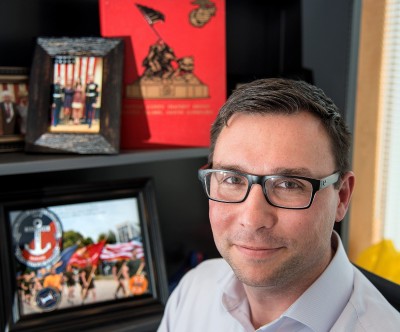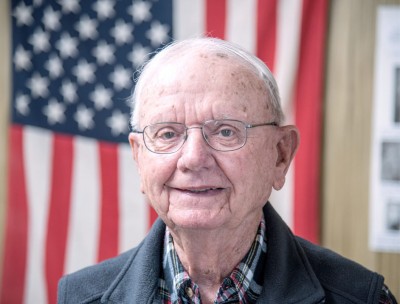Clyde Hudson
By Paul Wood

Photo By Robin Scholz/The News-Gazette
URBANA — On a patrol ship, Clyde Hudson served in both the Atlantic and Pacific hunting submarines that could attack convoys.
Hudson, 95, was in the Navy signal corps on USS PC 493, a convoy escort ship with a shallow draft, so that a sub would have to be on the surface to hit it with a torpedo.
The downside, he recalls, is that it took the seas rough — they called the PCs “bucking broncos.”
“I never threw up, but some of us lay sick on deck for days,” he recalls.
After St. Mary’s School and Champaign High School, Hudson followed his father into the railroads — his father had been shot while his son was still a boy.
He could have stayed working on the railroads, because it was an essential industry during World War II.
But the young man was enraged by the Japanese sneak attack on Pearl Harbor — “I was devastated” — and enlisted in the Navy soon after.
He was sent to the University of Chicago to study signals — communications — and graduated at the top of the class.
So the Navy made him a petty officer third class.
“I’d never been on a ship before, and now I was a petty officer,” he says.
The Navy immediately remedied that, and posted him to a ship, one protecting convoys out of Recife, Brazil.
Crossing the Equator, Hudson turned from a “pollywog” to a “shellback” after a series of humiliating challenges on board.
In 1943, German U- Boats were still killing machines, and PC 493 protected convoys all the way to Africa.
But after the D-Day landings in 1944, the naval war turned more toward the Pacific, and PC 493 went through the Panama Canal to protect ships from the Japanese Navy.
At one point, the PC circled around a damaged troopship to protect it from subs until a tugboat could arrive.
He fondly recalls the nurses cheering him on.
Hudson was headed for Tokyo Bay to invade Japan when the war ended with two massive atomic explosions.
Not long after, he came back to the states and married Marjory.
They had two sons — and later three grandchildren and a great-grandchild.
The railroad held his job for him, and he worked there until he retired.
Do you know a veteran who could share a story about their military service? Contact staff writer Paul Wood at pwood@news-gazette.com.
Read more stories from local veterans:
 Mark Friedman
URBANA — During the Cold War, Sgt. Mark Friedman spent much of his time in Germany, delivering secret documents. The cou …
Mark Friedman
URBANA — During the Cold War, Sgt. Mark Friedman spent much of his time in Germany, delivering secret documents. The cou …
 Jason Sakowski
Sitting in his office at the University of Illinois, Jason Sakowski looks comfortable, helping veterans with benefits is …
Jason Sakowski
Sitting in his office at the University of Illinois, Jason Sakowski looks comfortable, helping veterans with benefits is …
 Bill Kirby
TOLONO — Bill Kirby picked up downed aviators from the sea during World War II, saving Americans, British and even Germa …
Bill Kirby
TOLONO — Bill Kirby picked up downed aviators from the sea during World War II, saving Americans, British and even Germa …